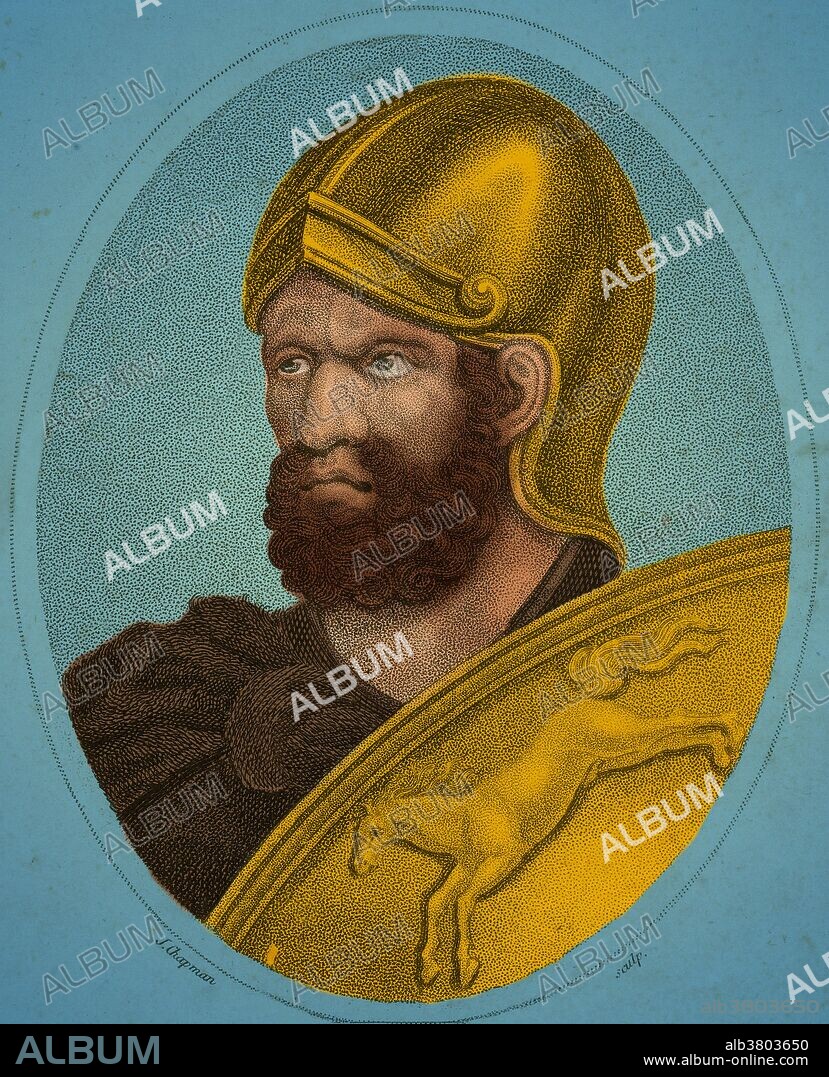alb3803650
Hannibal, Carthaginian Military Commander

|
Add to another lightbox |
|
Add to another lightbox |



Buy this image.
Select the use:

Title:
Hannibal, Carthaginian Military Commander
Caption:
Hannibal, son of Hamilcar Barca (247-183/182 BC) was a Carthaginian military commander and tactician generally considered one of the greatest military commanders in history. One of his most famous achievements was at the outbreak of the Second Punic War, when he marched an army, which included war elephants, from Iberia over the Pyrenees and the Alps into northern Italy. In his first few years in Italy, he won dramatic victories and won over many allies of Rome. Hannibal occupied much of Italy for 15 years, but a Roman counter-invasion of North Africa forced him to return to Carthage, where he was defeated at the Battle of Zama by Publius Cornelius Scipio Africanus. Seven years after the victory of Zama, the Romans, alarmed by Carthage's renewed prosperity, demanded Hannibal's surrender. Hannibal went into voluntary exile. Determined not to fall into enemy hands he took poison, which he had long carried about with him in a ring.
Credit:
Album / Science Source / New York Public Library
Releases:
Model: No - Property: No
Rights questions?
Rights questions?
Image size:
2492 x 3080 px | 22.0 MB
Print size:
21.1 x 26.1 cm | 8.3 x 10.3 in (300 dpi)
Keywords:
181 • 182 • 1ST BCE • 1ST CENTURY B. C. • 1ST CENTURY BC • 247 • 2ND BCE • 2ND CENTURY B. C. • 2ND CENTURY BC • 2ND PUNIC WAR • ACHIEVEMENT • ANTIQUITY • ARABIAN • ARMIES ARMY • ARMIES • ARMY • ART • ARTWORK • CARTHAGINIAN • CELEBRITIES • CELEBRITY • COLORIZED • COMMANDER • COMMITTED SUICIDE • DRAMATIC VICTORIES • DRAWING • ENHANCEMENT • FAMOUS PEOPLE • FAMOUS • FIGURE • GREATEST • HANNIBAL BARCA • HANNIBAL • HISTORIC • HISTORICAL • HISTORY • ILLUSTRATION • ILLUSTRATIONS • IMPORTANT • ITALIA • ITALY • MALE • MAN • MEN • MILITARY COMMANDER • NORTH AFRICAN • NOTABLE • OCCUPIED • PEOPLE • PERSON • PERSONALITIES • PERSONALITY • SECOND PUNIC WAR • SON OF HAMILCAR BARCA • TACTICIAN • TOOK POISON • WAR ELEPHANTS • WELL-KNOWN
 Pinterest
Pinterest Twitter
Twitter Facebook
Facebook Copy link
Copy link Email
Email
